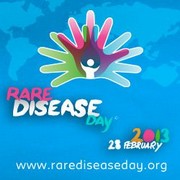The Food and Drug Administration gets a lot of grief. Some think the FDA is too restrictive, keeping useful drugs and devices off the market and thus harming patients. Others complain that the agency is too lax, letting dangerous products get through. What many people don’t realize, however, is that FDA has established an excellent track record of collaboration with stakeholders that’s leading to better, faster development pathways.
I’m directly aware of FDA’s longstanding constructive, collaborative efforts in the areas of HIV and HCV through the Forum for Collaborative HIV Research. Those efforts are now expanding into liver fibrosis and beyond.
So I was encouraged to to receive the following correspondence over the weekend from Mikael Totterman, founder of iCardiac Technologies, where I’m a board member.
—
On Friday, I attended the Cardiac Safety Research Consortium meeting hosted by the Food and Drug Administration announcing the results of a new study that promises significant advances and improvements to the way cardiac safety is assessed for new drugs being developed by pharmaceutical companies.
It was a great opportunity to review over a decade of work that had gone into enhancing one of the key areas of drug development and to reflect on how industry and government collaboration can lead to dramatic enhancements for all parties, especially patients.
Where It All Started – The FDA’s Critical Path Initiative
Back in March of 2004, the FDA launched the Critical Path Initiative to “drive innovation in the scientific process through which medical products are developed, evaluated and manufactured.” The document identified broad critical bottlenecks in drug development that, if tackled, promised to deliver significant improvements to the process of developing new drugs.
Specific Opportunities – Cardiac Safety – Traditionally Very Costly and Hard to Assess Well
By March of 2006, and as result of broad-based industry support, the FDA continued their collaborative work, and rolled out a highly targeted list of specific opportunities for industry collaboration to improve the overall effectiveness of drug development.
One of the key areas highlighted by the FDA across several specific opportunities was how drugs were assessed for cardiac safety issues, specifically for the potential to cause potentially lethal cardiac safety side effects.
“#18. Predicting Cardiac Toxicity. New tools for early identification of cardiac toxicity would improve product development for a wide array of conditions. Research investments that could produce tangible benefits quickly include creation of an ECG library from clinical trials that could be used for identifying potential early predictors of cardiac risk.
#46. Identification and Qualification of Safety Biomarkers. …For example, a robust database of preclinical and clinical data on cardiac arrhythmic risk could help us understand the clinical significance of QT interval prolongation, reduce the need for clinical studies, and, possibly, help identify individuals who are at risk for this side effect….”
Cardiac Safety – Consortia are Born
The level of interest in these opportunities was intense and so two separate industry/FDA consortia were developed to provide a venue and process for validating tools and methods that could tackle the issues in cardiac safety.
The Cardiac Safety Research Consortium was formed in 2006 through an FDA Critical Path Initiative Memorandum on Understanding and the Telemetric Holter ECG Warehouse was formed in 2008.
Significant Progress Unveiled at Cardiac Safety Research Consortium Meeting at the FDA
The Cardiac Safety Research Consortium meeting this past Friday was particularly exciting as it was the culmination of many years of work on the part of the FDA as well as many industry participants and thought leaders.
As the recommendations from the meeting are rolled out, the expectation is that cardiac safety testing in clinical trials will become ever more thorough and at the same time accomplished at a lower cost.
This is something that everyone should celebrate; patients, drug developers and regulators are all better off as a result of this long-term collaborative approach.
photo credit: ePublicist via photopin cc







